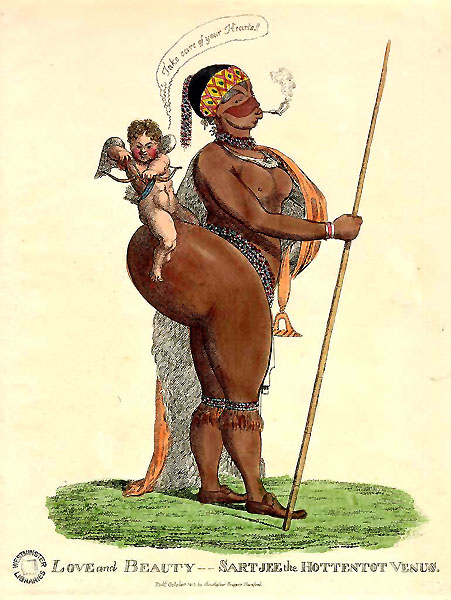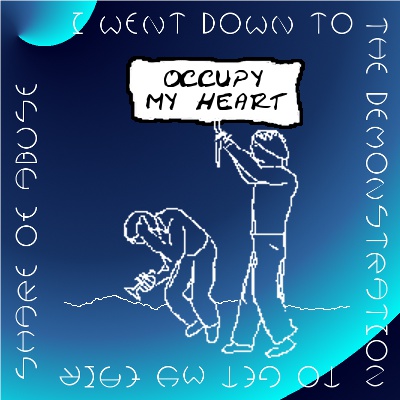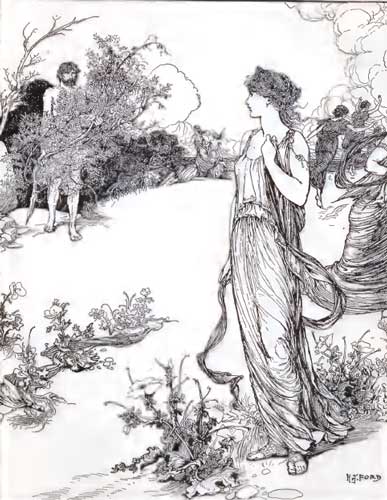 |
| http://www.carpentersfight.com/ |
Calling Occupants of Interplanetary Craft
by Bad Boys at Bat Mitzvahs
+++ i know lot of more trained singers diss it, but i like your nasal vox +++
+++ alt-county vibe +++
--- drums seem a little uncertain at time ---
by The Carpenters
I really don't know how to process this tune. It crosses so many rhetorical, musical and narrative genres that I'm kind of at a loss. The individual parts, of course, all hold up very well. But... as a whole, it just seems to meander here and there and everywhere. I'll take "Space Oddity" or "A Day in the Life" for my prefered flavors spice of science-fiction / multipart songs.
by Karenvan Ray
+++ ominous +++
/// i was really hoping that echoing distorted guitar was going to herald a smashing hard-rock change ///
+++ it just got darker +++
--- just kind of ends ---
/// though i wouldn't have known where to go with that, either ///
by The Carpenters
There's something creepily (and somewhat pleasantly) disjointed about the depressing lyrics and the sonic beauty of this song. And that upbeat hi-hat, who let that in? Especially with those gentle steel guitars, I can see Patsy Cline ripping this up with more pathos and raggedy edges.
by Sportswriters
+++ dynamics; great swelling energy +++
+++ happy-sounding guitars and vocal harmonies +++
+++ solo +++
by The Carpenters
That guitar riff works wonders and I'm very happy that Sportwriters has kept in his version. What doesn't strike true to me is that electric-sounding "boop" in the second part of the verse. The dynamics are here, and again I'm happy to Sportswriters reproducing it in his own way. This is first tune on this list that has a brilliant matching of tone and lyric. The melody and vocal harmonies are joyfully evocative.
by Jack Shite
+++ parody +++
Bias: I'm actually familiar with this one. This song really benefits from following Sportswriters, because while the Sports updates a lot of tones and instrumentation (for the better, in my opinion), he carefully reproduces the core of what works in The Carpenters' original recording, deferring to it. Jack Shite takes a nearly opposite approach, or rather, a sideways one. Instead of ditching all of the dated 70's era instruments and tones, he revels in them, matching them as closely as possible. His innovation is a wonderful deconstruction of Karen's spot-on-pitch-perfect-way-too-sappy vocals.
The downside of this take on a cover is two fold. 1) To get the joke, you have to know the original. Otherwise, there's really not much here to talk about, and the vocal take would be off-putting. 2) It's a bit of a one-trick pony. After the first verse, there were no surprises and Jack Shite's cover just paints by the numbers.
by The Carpenters
By the above paragraphs, you can probably discern that I don't like this song. The lyrics are middle-school-crush sappy, and the vocal melody often nearly trips over itself. This is a song full of, to me, odd stops and starts.
Top of the World
by Johnny Cashpoint
+++ carnalesque cacophony +++
--- sudden starts and stops ---
by The Carpenters
I'm generally a fan of J$, and he doesn't disappoint here. Like Shite, he skewers one just-too-perfect aspect of the original, in this case, the disco-country vibe of the instruments is replaced with a Wurlizter of cacophonous electronica and distorted guitars.
I have to say this about the original: damn if it never fails to get my head bopping! Its melody and rhythm are infectious!
by Paco del Stinko
+++ love the reverby guitar lick +++
+++ actually, every guitar bit is just perfect +++
--- you force your voice too much; it clashes with the up-beat lyrics and effortless joy of the music ---
+++ solo +++
by The Carpenters
The vocal harmonies on the original track are gorgeous, and the dynamics are wonderful, something that Paco makes the good decision to maintain. This is rightfully one of The Carpenters' most well-known songs. I love Karen's drum fills.
by Noah McLaughlin
--- ... and I kind of hate my own drum fills ---
+++ dual lead guitar parts as musical metaphor +++
+++ dynamics, even if some of the transitions are abrupt ///
/// i wonder if the bass part is too busy during the second part of the verse ///
+++ ending +++
by The Carpenters
When I first started studying this song, I was really engaged by its structural complexity. It has two choruses, or, a chorus with two parts. There's a lot going on, melodically, and all of it is interesting. I wanted to highlight that with my version. Karen's soulful crooning here is very emotive; and I knew I couldn't (and really shouldn't) replicate it. I don't like the syrupy backing backing vox for the first part of the chorus; it's too pretty for such a dire sentiment.
by DJ Ranger Den
+++ finds the Leonard Cohen in the lyric +++
+++ crash swells +++
/// not sure about the theremin ///
+++ cascading vocal harmonies in the coda +++
by The Carpenters
There's a rather zen-like sentiment of letting go of attachment that I associate with these lyrics, and it rubs me the wrong way how the original track just barrels through it and coats it in syrupy pop-music. That electric guitar lead is a great counterpoint; wish the track had more of that.
by The Heartbreak of Invention
+++ best Karen Carpenter sound-alike +++
+++ instrumentation and arrangement +++
+++ dynamics +++
by The Carpenters
Musically, there's not much going on with this track that interests me. It's very similar to the more successful "Goodbye to Love" above, though I believe it precedes it chronologically in The Carpenters' catalog. The lyrics are a mixed bag: part narrative, part painfully on-the-nose commentary with the "I love you, I really do," line.
by bgm
+++ reminds me of David Bowie in all the good ways +++
+++ swell! +++
+++ instrumentation and arrangement +++
+++ great, effortless vox +++
by The Carpenters
With its sparse instrumentation, this tune is clearly a showcase for Karen's lovely voice. As such, it works well. The sound, alas, is dated: slick and lush, but snnnnnrrrxxx - oh, excuse me, I kind of nodded off there. The lyrics are again, a mixed bag, especially as their mediation on solitude and (again) a zen-like kind of shedding attachment clashes with the triumphant orchestration.
by Octothorpe
/// wish I could hear the vox more; they're buried by that synth lead to the right ///
+++ drums +++
by The Carpenters
Conclusion
If there's one thing that this fight has taught me is the deceptive simplicity of The Carpenters. Sure, it's pretty and the instrumentation doesn't seem all that complex and the lyrical themes usually seem to be straightforward romantic conventions. But don't let the slick '70's pop production fool you: The Carpenters have some fantastically complex songs, rich in time- and key-changes along with swathes of gorgeous sound that once you start deconstructing can get you lost in a hall of musical fun-house mirrors.
I'm really happy to say that all the participants really rose to the various challenges of their selected tunes. It's a fabulous illustration that regardless of genre, performance or production abilities, the heart of a great song will almost invariably produce a great song.










